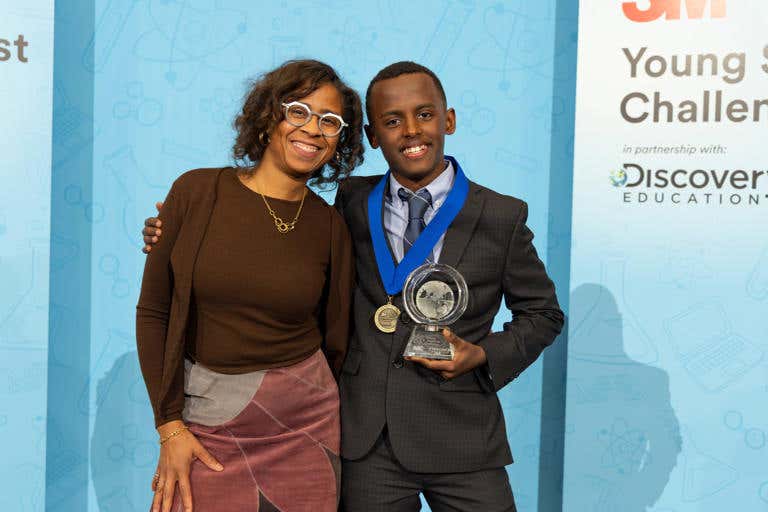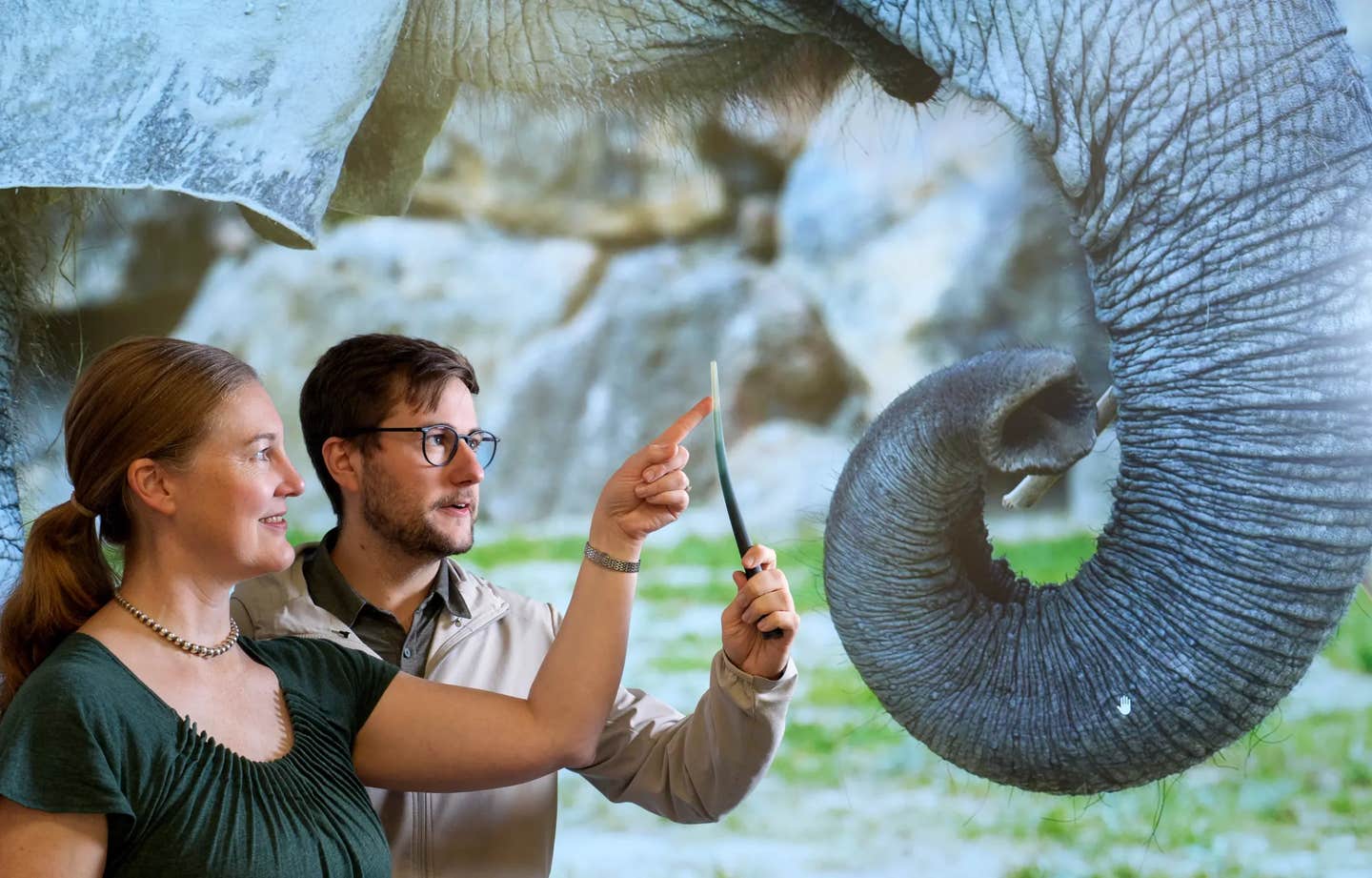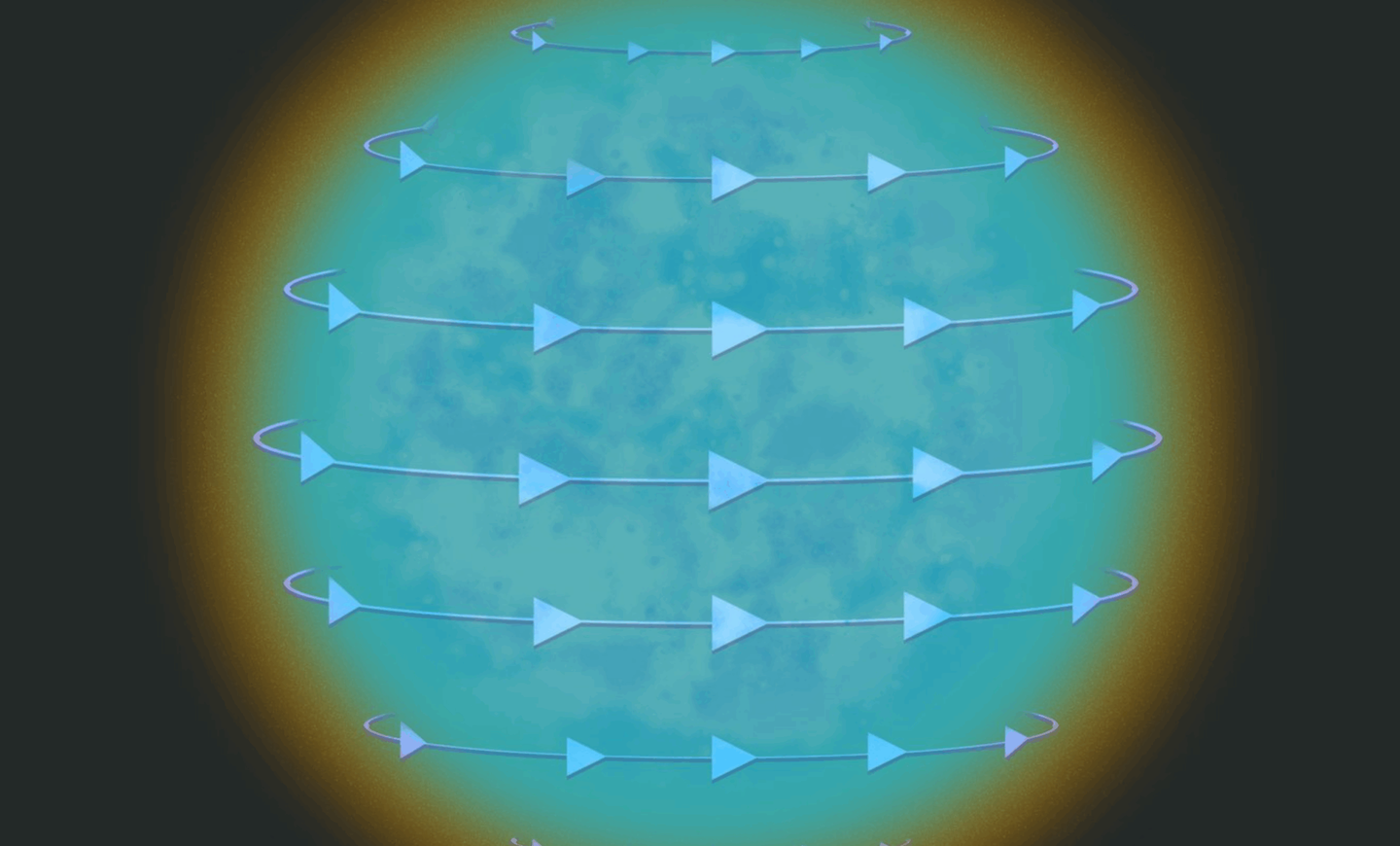Amazing 14-year-old invented soap to treat skin cancer – named America’s Top Young Scientist
At just 14, Heman Bekele revolutionizes skin cancer treatment, earning national accolades in a prominent middle school science competition.

[Oct. 24, 2023: Staff Writer, The Brighter Side of News]
Heman Bekele, 14, is pictured in St. Paul, Minnesota in October 2023 after winning the Young Scientists Challenge for inventing soap to treat melanoma. With him is his mentor, Deborah Isabelle, a product engineering specialist at 3M. (CREDIT: Andy King/3M and Discovery Education 2023)
In an era where innovation is the cornerstone of scientific advancement, Heman Bekele, a 14-year-old from Annandale, Virginia, has astounded the scientific community. He has not only breached the boundaries of traditional medical treatment but also emerged as "America's Top Young Scientist" by inventing a potentially groundbreaking soap designed to combat skin cancer.
The ninth-grader's phenomenal achievement was recognized and rewarded in one of the nation's most esteemed science competitions for middle schoolers, hosted by 3M and Discovery Education. In an environment where young minds are encouraged to nurture their scientific curiosity, Bekele's ingenuity shone exceptionally bright.
"I believe that young minds can make a positive impact on the world," Heman confidently stated in his award submission, reflecting a mature understanding of the transformative power of youth-led innovation in global health challenges.
His journey wasn't an overnight success but a culmination of his lifelong interest. "I have always been interested in biology and technology, and this challenge gave me the perfect platform to showcase my ideas," he recounted, emphasizing the crucial role such platforms play in fostering young scientific talent.
Related News
The Prestigious Competition: Fostering Young Innovators
The "America's Top Young Scientist" competition isn't just any science fair. It's a rigorous, months-long contest that pits the most brilliant young minds against each other, all vying for the chance to be recognized as the country's most promising young scientist. Entrants, ranging from fifth to eighth graders, are tasked with conceptualizing and presenting an innovative idea potent enough to change the world.
For his sterling contribution, Heman wasn't just awarded the prestigious title; he also received a $25,000 cash prize, underscoring the value placed on groundbreaking scientific thought. The award ceremony, held at 3M's headquarters in St. Paul, Minnesota, on October 9 and 10, was a momentous occasion, marking the young visionary's official induction into the scientific community.
But the spotlight didn't solely focus on Heman. Shripriya Kalbhavi, a talented ninth-grader from San Jose, California, clinched second place with her inventive medical patch facilitating self-automated medication delivery, eliminating the need for traditional pills or needles. Not far behind was Sarah Wang, a seventh-grader from Andover, Massachusetts, who secured third place by developing a specialized glove capable of detecting specific epileptic seizures through common hand movements.
While Shripriya and Sarah each received $2,000, students who ranked fourth through tenth weren't left empty-handed. They were awarded a $1,000 prize and a $500 gift card, a gesture acknowledging the diverse array of bright young scientists stretching from Portland, Oregon, to Austin, Texas, and beyond.
Heman Bekele, a ninth grader at W.T. Woodson High School, won the grand prize for his invention of a skin cancer–fighting soap. (CREDIT: Northern Virginia Magazine)
At the heart of Heman's award-winning project is a revolutionary compound-based soap engineered specifically to treat melanoma, the most dangerous form of skin cancer. Astonishingly, the production cost of this potential lifesaver is only about $.50 per bar, highlighting Heman's dedication to cost-effective healthcare solutions.
But Heman's vision extends far beyond the accolades. Within the next five years, he plans to establish a non-profit organization dedicated to distributing his innovative soap to underserved communities, a testament to his commitment to global health equity. Unfortunately, competition organizers were unavailable to facilitate an interview with Heman, leaving media outlets and the public alike eagerly awaiting further insights into his brilliant mind and future plans.
Finalists for 3M Young Scientist Challenge (CREDIT: 3M)
Heman's invention arrives against the backdrop of a worrying increase in skin cancer cases across the United States. According to the National Cancer Institute, there has been a significant uptick in the incidence rates over the past few decades. The rate of new cases escalated to 24.1 per 100,000 people in 2019, a stark increase from 14.6 in 1992.
The National Institute of Health paints a similarly disconcerting global picture, identifying skin cancer as one of the most frequently diagnosed groups of cancers worldwide. An estimated 1.5 million new cases were anticipated in 2020 alone, underscoring the urgent need for innovative and accessible treatments like the one Heman proposes.
Woodson freshman Heman Bekele experiments with different combinations of products to develop his skin cancer treating soap. (CREDIT: FCPS)
In light of these statistics, regular screening for skin cancer has never been more critical. Early detection remains a key factor in successful treatment outcomes, highlighting the need for widespread public health initiatives focused on prevention and early intervention.
A Beacon of Hope
In a world grappling with complex health challenges, Heman Bekele represents a beacon of hope. His inventive approach to addressing skin cancer embodies the very essence of scientific exploration and social responsibility. While his journey is just beginning, Heman stands as a compelling reminder that revolutionary ideas can indeed spring from the youngest of minds, and when given the opportunity, these minds have the power to change the world.
As we anticipate the wide-scale production and distribution of Heman's skin cancer-fighting soap, one message resonates clearly: in the realm of scientific innovation, age is merely a number, and a single idea, no matter how small it may seem, has the potential to make a monumental impact on global healthcare landscapes.
Note: Materials provided above by The Brighter Side of News. Content may be edited for style and length.
Like these kind of feel good stories? Get the Brighter Side of News' newsletter.



